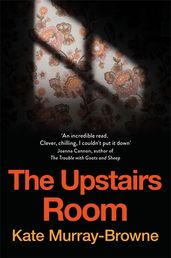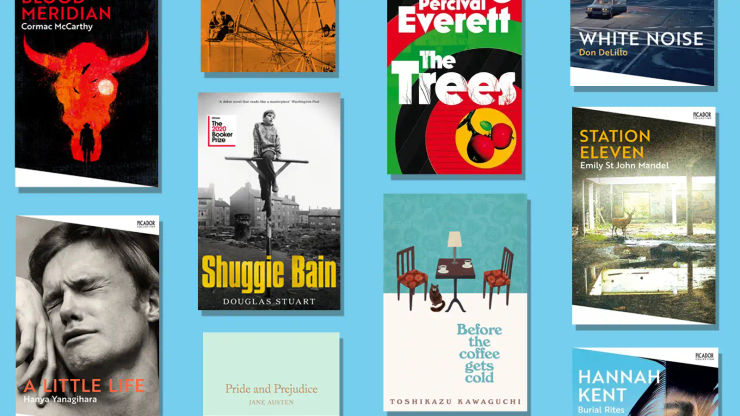A love letter to independent bookshops
Kate Murray-Browne, author ofThe Upstairs Room, shares the joy of a childhood spent in her father's independent bookshop.

'An independent bookshop with good staff is a cartographer, allowing you the freedom to make diversions on the way and sometimes end up somewhere unexpected.'
Kate Murray-Browne, the author of The Upstairs Room, shares her childhood memories spent in her father's bookshop and explains why, for her, nothing compares to the experience of browsing the shelves of her favourite indie bookshop.
When I was growing up, my father owned an independent bookshop, The Angel Bookshop in Camden Passage, and I was allowed to pick any book I liked off the shelves. It was a luxury I didn’t appreciate until I was older, like being the only member of a library. Looking at the books was a favourite Saturday activity: the sense of possibility contained in the spines. Choosing something because of the cover and the words, but also the feel, texture and weight. Talking to my dad and his staff (who were often eccentric, always interesting) about books.
When I was older, I worked behind the counter and it was unlike any other job I’d had. When I worked in a cashmere shop, you weren’t allowed to sit down, or talk to other members of staff, and we worked on commission, so we had to be unrealistically enthusiastic about £400 ponchos. At my dad’s shop, we sat, chatted, and drank coffee (my dad would smoke a pipe behind the counter well into the late eighties). If someone asked whether a book was good, the rule was you had to be honest, but if you didn’t like it, end on a positive note: ‘but his first novel was very good.’
It’s a code that makes sense, though it wouldn’t in any other retail context (‘a cashmere baby blanket is a ludicrous idea. But the fingerless mittens are reasonably priced’). It’s forged on the idea, I suppose, that the relationship with your bookseller lasts beyond the purchase, that an element of trust is important. Certainly, my dad’s customers trusted him: one would come into the shop on Christmas Eve, with a list of his relatives and their interests, and let my dad do his Christmas shopping.
When the shop closed in 2005, I was in an odd position – I was twenty-two and I had never bought a book. Independent bookshops were closing; chains felt chilly and dead. So I went online, because it was cheap and easy, and for a long time that was fine. I made my choices in other ways and made my purchase on a computer.
It was only when I started visiting the London Review Bookshop for a lunch-hour diversion, that I realised how much I’d been missing. I liked having books presented to me on the front tables, knowing that they had been chosen by an individual with a brain rather than an algorithm. I liked looking at the displays and staff picks and then just looking at the spines seeing if something had caught my eye.
Books contain a continent of wisdom and joy, but with a chain or online stores, you are left to navigate the terrain yourself. That’s fine if you know your destination: the search engines or the store guides can get you from A to B. But an independent bookshop with good staff is a cartographer, allowing you the freedom to make diversions on the way and sometimes end up somewhere unexpected. The character of each shop comes through: I like knowing that Heywood Hill in Mayfair will have the Everyman editions of P. G. Wodehouse and that Pages of Hackney will have a copy of The Argonauts by Maggie Nelson.
Pages of Hackney is now where I get all my books, and I still feel the sense of possibility in the spines. I like chatting to the staff, about reading, but also writing and publishing and holidays and sea shanties. (The warm, collegiate feel of independents seems to bring something out in customers too: I’ve had all sorts of conversations with strangers in bookshops, about A. E. Housman, childbirth and bicycles). Even when I know exactly what I want and it isn’t something I’d expect to see on the shelves, I still ask them order it for me. It’s just as quick (and friendlier) than an online transaction and the book will probably arrive the next day. It’s more expensive, but then, I believe in valuing books and writers, so I feel I ought to put my money where my mouth is. I have to go and pick it up of course, but I get to chat to the staff, or someone else, and look at the books and then . . . sometimes end up somewhere unexpected.
My daughter is four months old and I watch her grab her books – interested not just in the sound of me reading but the feel and the texture and the weight. It reminds me that interacting with books can be a physical thing, a social thing, and I hope that, one day, she will treat her books that way too.
The Upstairs Room
by Kate Murray-Browne
A ghost story for the contemporary housing crisis from a thrilling new talent.
Eleanor, Richard and their two young daughters recently stretched themselves to the limit to buy their dream home. But the cracks are already starting to show. Eleanor is unnerved by the eerie atmosphere in the house and becomes determined to unravel the mystery of the house's previous owners - including Emily, whose name is written hundreds of times on the walls of the upstairs room.



